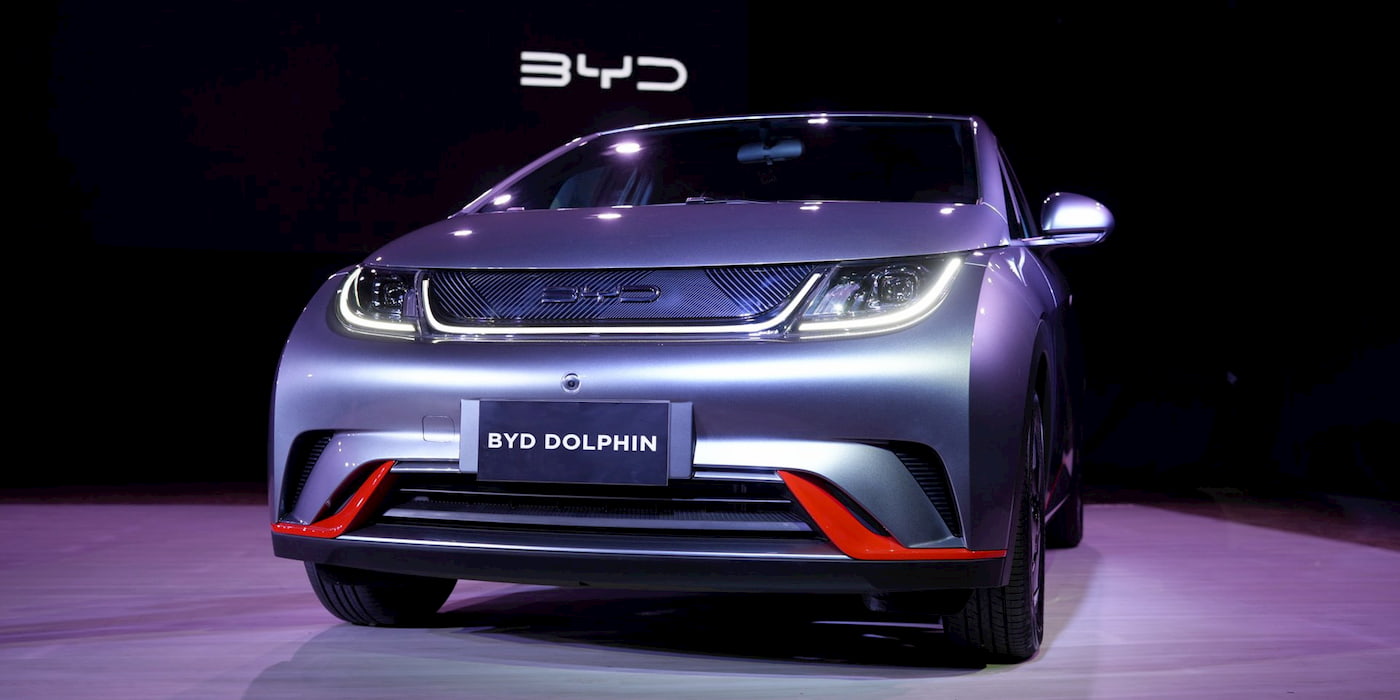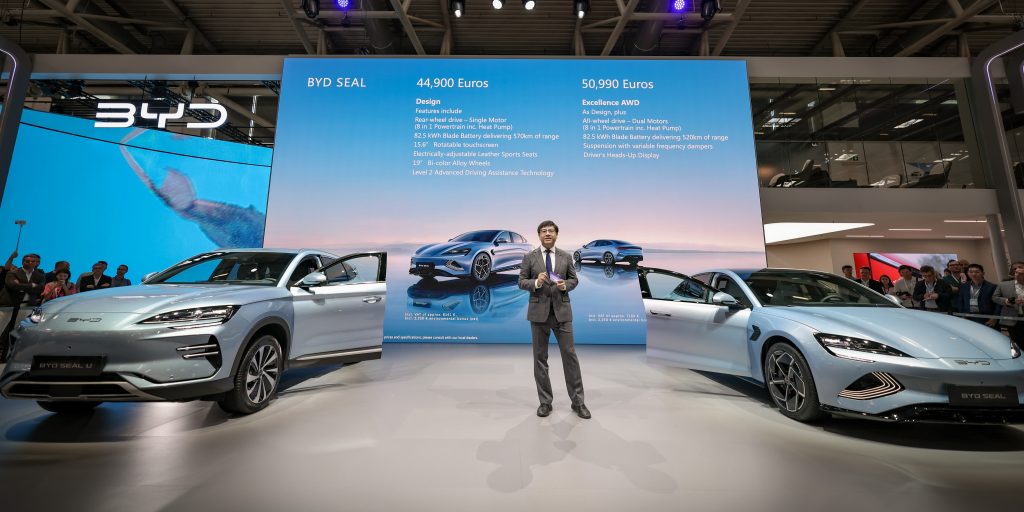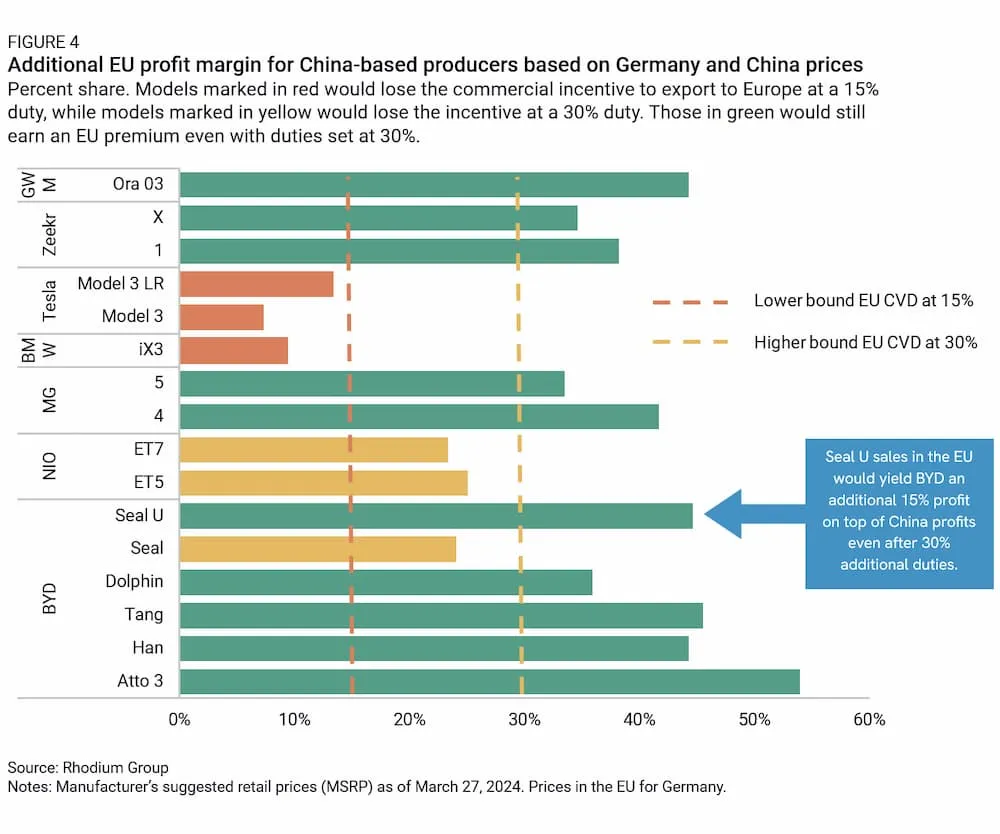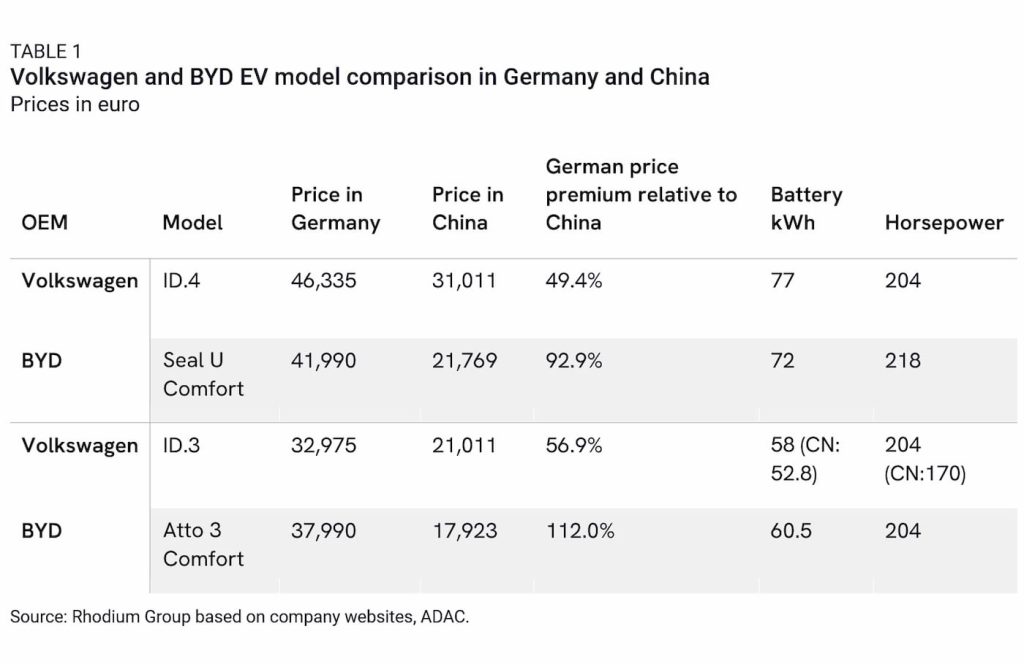
Chinese EV makers, including BYD, accounted for over 40% of German EV imports through April 2024. China remained the largest EV importer in Germany ahead of the new EU tariffs. Can China maintain the momentum with additional tariffs on EV imports of up to 38.1%?
Despite Chinese electric vehicle imports slipping 15.7% in Germany through the first four months of 2024, their market share still increased.
According to data released by the German statistics office Tuesday (via Reuters), German EV imports from Chinese automakers like BYD reached 31,500 through April 2024. China held the region’s largest share of EV imports at 40.9%.
The statistics office explained that the lower imports were due to weaker domestic demand. While Chinese EV imports fell slightly, other countries, like South Korea, saw a nearly 50% drop in EV imports.
“Chinese electric car imports thus declined much more weakly than total imports of electric cars,” the German statistics office stated.
The market share growth comes as the EU revealed additional tariffs that will be placed on Chinese EV imports last week.

Will the new EU tariffs impact BYD, China EV imports?
If no resolution is found by July 4, 2024, BYD will receive an additional 17.4% tariff, Geely will get an extra 20%, and SAIC will receive a 38.1% additional duty. Other Chinese EV makers, like NIO, will get an extra 21% tariff on European EV imports.
However, the extra costs may not be enough to deter Chinese automakers from selling EVs overseas.

Research from Rhodium Group shows even with an extra 30% tariff, BYD would still earn a +15% profit on its Seal U sold in the EU over China.
BYD’s Seal U costs nearly 93% more (41,990 euro vs 21,769 euro) in Europe than in China. Compared to other automakers like Volkswagen, with a 50% markup on the ID.4, BYD is enjoying more of the “EU Premium” on EVs.

According to the study, tariffs may need to be raised to 40%, 50%, or higher to slow the momentum.
Electrek’s Take
Several Chinese automakers, like BYD and NIO, are still committed to expanding their brands in Europe despite potential tariffs.
Recent research suggests automakers like BMW will see some of the most severe impacts. Even with the extra duties, BYD’s cheapest electric car, the Seagull, is expected to arrive with prices starting under $21,500 (20,000 euros).
In China, BYD’s Seagull EV starts at $9,700 (69,800 yuan). In overseas markets, like Brazil, the low-cost EV starts at around $20,000 (99,800 BRL).
BYD’s CEO, Wang Chuanfu, said the EU and US were “afraid” of Chinese EVs earlier this month. “If you are not strong enough, they will not be afraid of you,” Wang explained. BYD’s leader said the new tariffs are a testament to China’s auto industry strength.
What do you guys think? Can BYD and other Chinese EV makers maintain their momentum with new tariffs? Let us know your thoughts in the comments.
